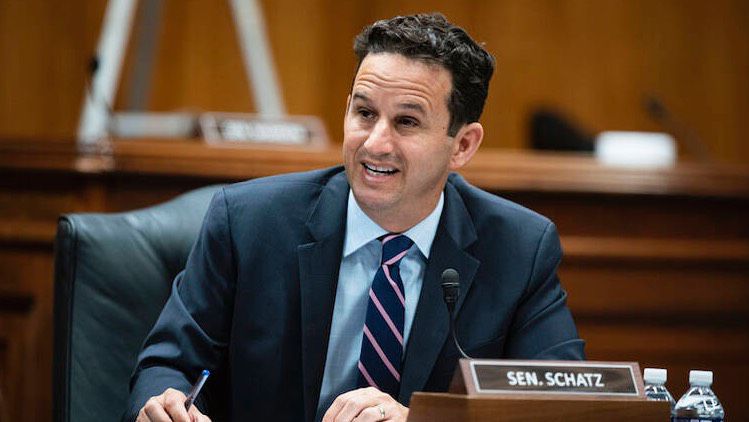WASHINGTON — U.S. Sens. Mazie Hirono and Brian Schatz, both D-Hawaii, lambasted the U.S. Supreme Court’s decision in Loper Bright Enterprises v. Raimondo, which effectively casts aside the 40-year-old Chevron doctrine by which courts defer to federal agency interpretations of ambiguous laws.
“Another day, another longstanding precedent cast aside by a radical Supreme Court majority hellbent on rewriting the rules to suit their corporate sponsors,” Hirono said. “By overturning Chevron, the conservative majority on this Court has jeopardized the entire regulatory system on which much of our country and our economy rests.”
The doctrine, also known as the Chevron deference, was established in the 1984 case Chevron USA, Inc. v. Natural Resources Defense Council, Inc. In that case, the court held that when Congress delegates a federal agency to administer a federal statute, courts will defer to that agency’s interpretation of the statute if it is ambiguous or unclear and may not substitute their own interpretation.
While the doctrine was initially embraced by conservatives as a check against potential judicial activism, Hirono has previously claimed that contemporary far-right conservatives now view it as an impediment to consolidating power and enabling conservative judges to legislate from the bench.
In Friday’s 6-3 decision, the court overturned its earlier decision, which Chief Justice John Roberts referred to as “fundamentally misguided,” and held that courts should be allowed to act on their own interpretations.
In the court’s 35-page decision, Roberts asserted that the Chevron doctrine conflicts with the Administrative Procedure Act, which requires courts to apply their own judgment when deciding legal questions involving how statutes are interpreted.
“It thus remains the responsibility of the court to decide whether the law means what the agency says,” Roberts wrote.
Hirono and Schatz disagreed, arguing that deference should be paid to those who know the subject matter best.
“At its core, this case was about who should be making policy decisions on issues that affect our lives — subject matter experts or federal judges?” Hirono said. “Congress created federal agencies to implement informed, evidence-based regulations that protect the American people and small businesses across the country. By eliminating Chevron, the Court has empowered hundreds of individual federal judges to overrule carefully considered decisions made by agency experts, turning a consistent regulatory framework into a chaotic mess of conflicting opinions, just as big business has long hoped.
“Today’s decision is yet one more component of the far-right’s broader mission to capture the courts, advance their conservative ideological agenda, and hollow out our regulatory system,” she said.
The consequences of Friday’s decision could be severe on several fronts, Schatz said.
“The corrupt MAGA Court’s disastrous decision to kneecap federal agencies from doing their jobs means Americans will have weaker protections on everything from the climate to health care to food safety,” Schatz said. “The Constitution is clear: Congress makes laws and the executive branch — through federal agencies — implements them, making sure they’re responsive to the country’s ever-changing needs.
“In upending decades of precedent, this extreme court has once again tried to make it more difficult for the federal government to serve and defend the public’s interests. But make no mistake, the progress we’ve made in protecting our environment and making health care more affordable cannot be undone by a single decision from a group of unelected justices. Instead, outrageous decisions like this one should deepen our resolve to continue fighting for enduring progress on the issues that matter to people, whether it’s cleaner skies or healthier food or fairer workplaces.”
Michael Tsai covers local and state politics for Spectrum News Hawaii. He can be reached at michael.tsai@charter.com.



